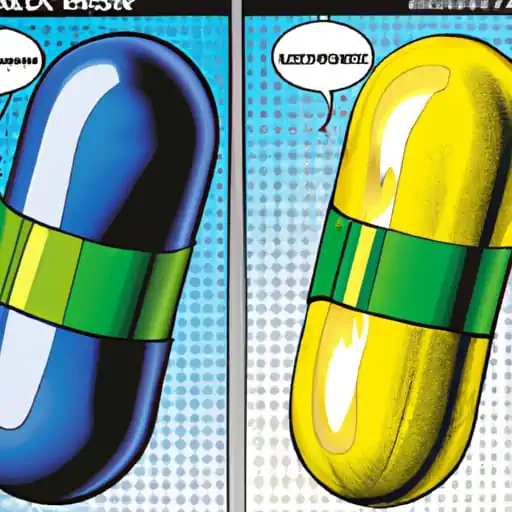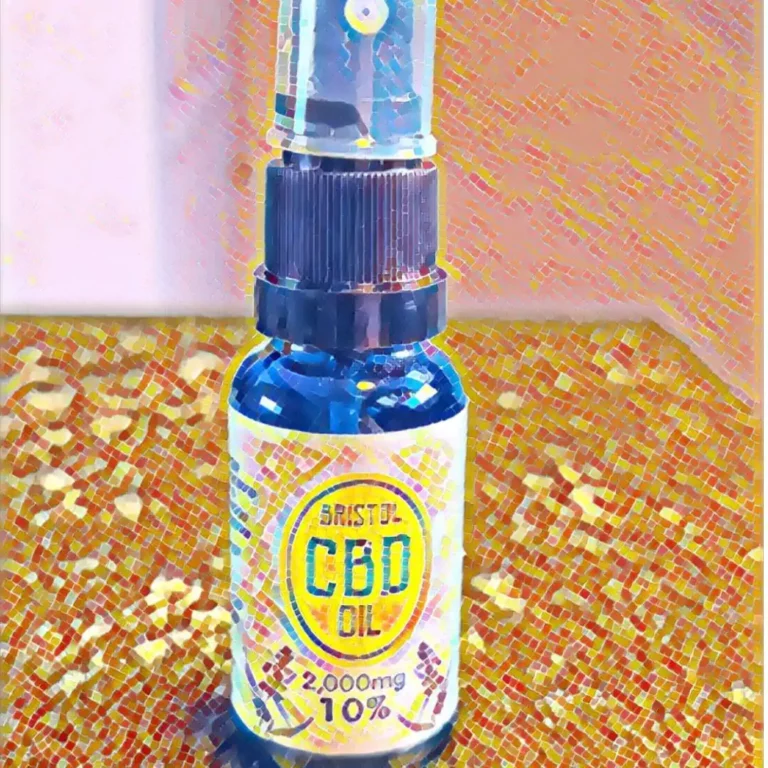Zoloft vs Lexapro for Anxiety: Which is Best?

Zoloft versus Lexapro: Introduction
Anxiety is one of the most common mental health conditions that affects millions of people in the United States. Selective serotonin reuptake inhibitors (SSRIs) are a class of medications commonly used as first-line treatment for anxiety disorders, such as panic disorder, generalized anxiety disorder, social anxiety disorder, obsessive compulsive disorder, and post-traumatic stress disorder.
SSRIs are called antidepressant medications, but are used for both anxiety symptoms and the symptoms of depression. We also know that benefits seem to be dose related so that you get more benefit at a higher doses and not so much benefit at lower doses. It is common practice to increase the dose until optimum relief from depression and anxiety is reached and any side effects are still tolerable. We expect fewer side effects at lower doses.
There are many different types of anxiety disorders, such as panic disorder, social anxiety disorder, obsessive-compulsive disorder (OCD), and post-traumatic stress disorder (PTSD). To treat these conditions, doctors often prescribe selective serotonin reuptake inhibitors (SSRIs). SSRI antidepressants are a class of medications that work by increasing the levels of serotonin in the brain.
Zoloft (sertraline) and Lexapro (escitalopram) are two popular SSRI drugs that have FDA approval for the treatment of anxiety and other mental health conditions. In this article, we will take a closer look at these two drugs, including their effectiveness, side effects, and potential drug interactions. We will also compare the cost and coverage of these two drugs, and answer some frequently asked questions about their use.

Short Answer: Which is Best For Anxiety?
I hate to do this to you, but it depends. I prescribe both. I prefer Lexapro (escitalopram), but I have patients who hate Lexapro and love Zoloft. Zoloft tends to make you nauseous initially, whereas Lexapro can but mostly doesn’t. Often, I’m guided by what worked for family members, on the grounds that they have similar biology. But it’s really hard to predict.
I’d say Lexapro, but you need to take it in the morning to avoid insomnia. On the other hand, it may boost your energy levels (no guarantees).
Zoloft, on the other hand, often makes people sleepy.
We believe that Zoloft is more cardiac friendly, so if you have heart issues, then you should prefer Zoloft to Lexapro.
What are Lexapro and Zoloft?
Lexapro, also known by its generic name, escitalopram oxalate, is an SSRI medication that works by increasing the levels of serotonin in the brain. This helps to improve mood and reduce symptoms of anxiety and depression. Zoloft, also known by its generic name, sertraline hydrochloride, is another SSRI medication that works in a similar way.
Both drugs are prescription medicines that are taken orally and are available in tablet and as an oral solution. They are approved by the U.S. Food and Drug Administration (FDA) for the treatment of a variety of mental health conditions, including anxiety and depression.
Conditions treated by Lexapro and Zoloft
Both Lexapro and Zoloft are commonly used to treat a variety of mental health conditions, including:
- – Panic attacks
- – Social anxiety disorder
- – Obsessive-compulsive disorder
- – Post-traumatic stress disorder
- – Major depression
- – Premenstrual dysphoric disorder
Is Lexapro or Zoloft more effective?
Both Lexapro and Zoloft have been shown to be effective in treating anxiety and depression in clinical trials. However, the specific drug that is a better choice for an individual will depend on their specific symptoms, medical history, and potential side effects. It’s important to discuss with your healthcare provider which medication may be the best option for you.
A 2018 meta analysis in The Lancet ranked Lexapro as the 9th most effective antidepressant and Zoloft as the 10th. The same study ranked anxiety medications in order of side effects and found Lexapro third best for low side effects, and Zoloft ninth best. So it seems that Lexapro is better tolerated and also slightly more effective according to the data.
Drugs.com is an amazing site where people rate their medications in the same way you give ratings on TripAdvisor or Amazon.
We find that on drugs.com, people who are actually taking the medication, but only the ones motivated to rate it gave Lexapro 7.5 out of 10 and Zoloft 6.8.

Side Effects
Like all medications, Lexapro and Zoloft can cause side effects. They tend to cause the same side effects as other SSRI medications. Some common side effects of these drugs include:
- – Nausea
- – Dry mouth
- – Dizziness
- – Insomnia
- – Diarrhea
- – Headaches
- – Sexual side effects such as erectile dysfunction and difficulty achieving orgasm
- – Weight gain
The common side effects of Zoloft are pretty similar to common side effects related to the use of Lexapro, though Zoloft may give you more of an upset stomach than Lexapro for the first few days.
The Maudsley Prescribing Guidelines in Psychiatry (14th edition, page 344) gives the same incidence of sexual dysfunction across all the SSRIs, so there are no key differences in side effects in this area between the two medications. The same guidance suggests that Lexapro may cause a small decrease in heart rate and a small drop in blood pressure, while they say that Zoloft has minimal effect on both of these and though they find some evidence of safety for Lexapro after a heart attack, they say that Zoloft appears to be safe.
In rare cases, more serious side effects can occur, such as allergic reactions, serotonin syndrome, and increased risk of suicidal thoughts and behaviors, especially in young adults. A healthcare professional should be consulted if any serious side effects occur.
Drug Interactions
Both Lexapro and Zoloft can interact with other medications, including blood thinners, high blood pressure medications, and monoamine oxidase inhibitors (MAO inhibitor or MAOIs). It’s important to inform your healthcare provider of all medications and supplements you are currently taking before starting treatment with Lexapro or Zoloft.
Coverage and Cost Comparison
Both Lexapro and Zoloft are prescription drugs, and the cost of these medications can vary depending on the individual’s insurance coverage. Generic versions of both drugs are also available, which can be less expensive than the brand name versions.

Drug Interactions
Both Lexapro and Zoloft can interact with other drugs, including prescription medications, over-the-counter drugs, and supplements. For example, both drugs can interact with blood thinners, high blood pressure medications, and monoamine oxidase inhibitors.
Social Anxiety Disorder and Obsessive-Compulsive Disorder
Both Lexapro and Zoloft are also used to treat social anxiety disorder and obsessive-compulsive disorder, two other common mental health conditions. Social anxiety disorder, also known as social phobia, is characterized by intense fear and avoidance of social situations. Obsessive-compulsive disorder, or OCD, is characterized by unwanted, recurring thoughts or impulses (obsessions) and repetitive behaviors or mental acts that an individual feels driven to perform (compulsions).
Drug Administration and Dosage
Lexapro and Zoloft are available in tablet form and can be taken orally. Lexapro is also available in a liquid form. The recommended starting dose for Lexapro is 10 mg once daily, while the recommended starting dose for Zoloft is 50 mg once daily. These doses may be increased by a healthcare provider depending on the individual’s response to the medication and their specific medical conditions.
If you have a missed dose, take it when you remember, except when it is nearly time to take your next dose. This is usually the next day. In that case, just take the next one and don’t double up.
Doses may be reduced for older adults.
Premenstrual Dysphoric Disorder and Serotonin Syndrome
Lexapro and Zoloft are also used to treat premenstrual dysphoric disorder (PMDD), a severe form of premenstrual syndrome. Both drugs can increase the risk of serotonin syndrome, a rare but serious condition that occurs when there is too much serotonin in the body. Symptoms of serotonin syndrome can include confusion, agitation, sweating, shivering, and muscle stiffness.
Withdrawal Symptoms
Zoloft and Lexapro withdrawal symptoms are similar and both can include: dizziness, headaches, nausea, trouble sleeping, irritability, agitation, anxiety, and flu-like symptoms. The intensity and length of these symptoms can vary, and they may be worse if the medication was stopped suddenly. Before stopping any medication, it’s important to talk to a doctor or nurse. They can help you slowly stop taking the drug to reduce withdrawal symptoms.

Zoloft vs. Lexapro for Anxiety: Conclusion
When it comes to Zoloft vs Lexapro for anxiety we have to say that Lexapro and Zoloft are both effective treatment options for mental health conditions such as anxiety and depression. Each one is a licensed prescription medication and either is a good choice.
Both belong to the class of medications known as “selective serotonin reuptake inhibitors” (SSRIs) and work by increasing the levels of serotonin in the brain. While both drugs have been found to be effective in clinical trials, the best choice for an individual will depend on their specific medical history, symptoms, and potential risk of side effects.
The research shown above puts Lexapro ahead of Zoloft every time, both in terms of tolerability and effectiveness, and that is also my own experience based on the anecdotes of my patients. But, in some circumstances, like being over 60 or having heart problems, we would prescribe Zoloft before Lexapro.
There is very little evidence about the comparable safety of Zoloft to Lexapro in pregnancy, but again, in practice. we would prefer Zoloft to Lexapro. It’s important that you get the opinion of a doctor, who will advise you accordingly.
As always, it is important to consult with a healthcare professional before starting any new medication. They will be able to give you professional medical advice and help you decide which option is best for you. It is also important to be aware of the potential side effects and drug interactions associated with these medications, and to report any serious side effects or adverse events to a healthcare provider immediately. With the right treatment and support, it is possible to manage the symptoms of anxiety and depression and improve overall mental health.
Related Articles
<strong>Hydroxyzine For Anxiety: A Basic Guide</strong>
Is Venlafaxine A Good Medication for Anxiety and Depression?
101 Fascinating, Amazing and Sometimes Worrying Antidepressant Statistics: 2023






